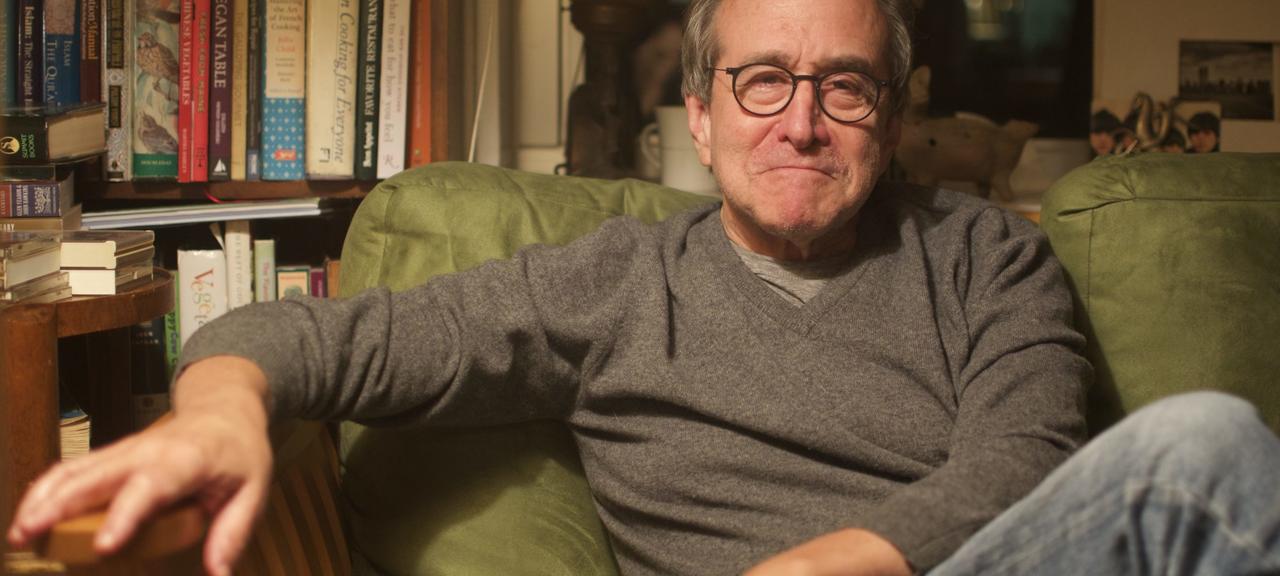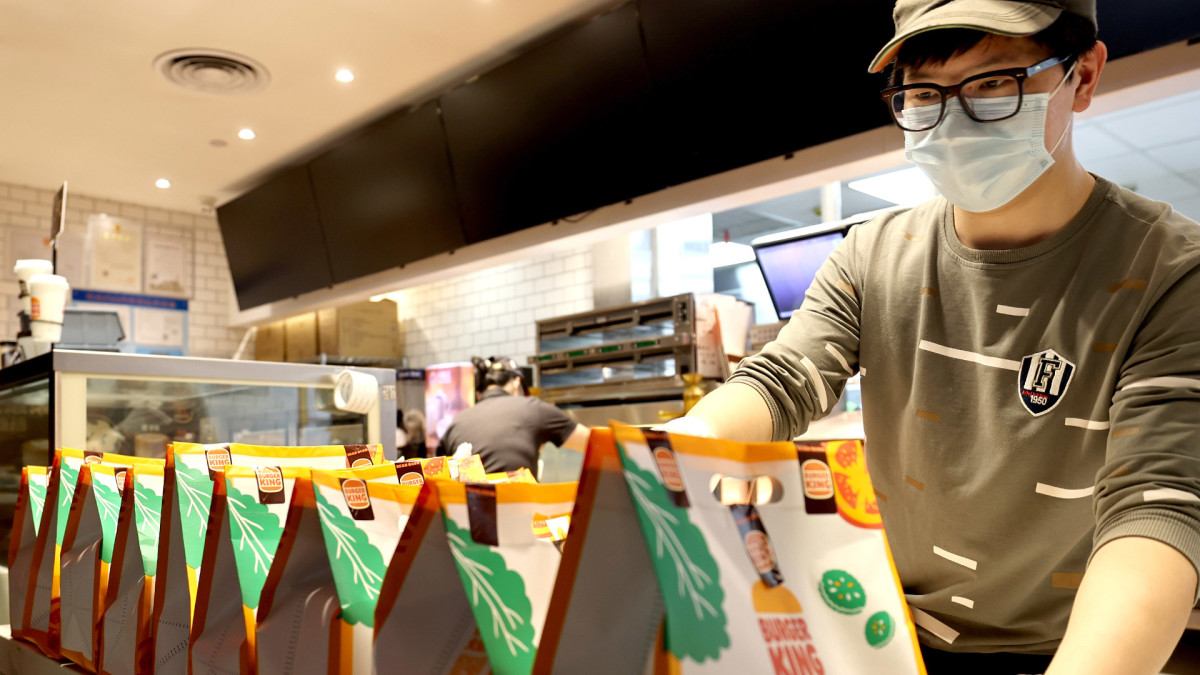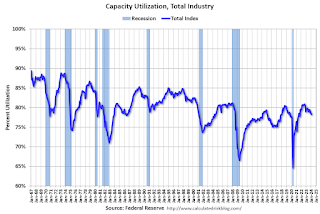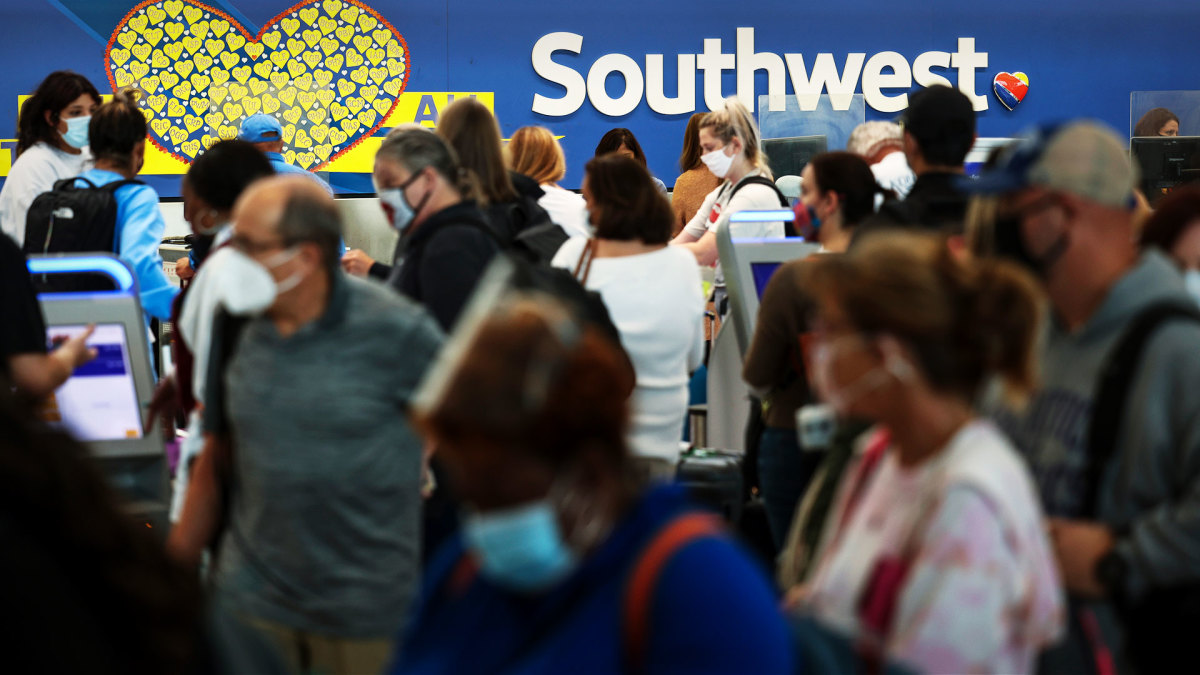Uncategorized
Masking, Propaganda, & The Outrage Mob’s Murder Of Academic Freedom
Masking, Propaganda, & The Outrage Mob’s Murder Of Academic Freedom

If you believe in academic freedom, as well as free speech overall, please consider signing this petition, and sharing it with others who believe that higher education must be free from censorship of any kind, whether by the state, corporations, foreign interests, pressure groups, or by the university itself.
A full professor in NYU’s Department of Media, Culture and Communication (since 1997), and a recipient of fellowships from the Rockefeller, Guggenheim and Ingram Merrill Foundations, Prof. Miller teaches a course on propaganda, focusing not only on the history of modern propaganda, but - necessarily - on propaganda drives ongoing at the time.
The aim is to teach students to identify such drives for what they are, think carefully about their claims, seek out whatever data and/or arguments have been blacked out or misreported to protect those claims from contradiction, and look into the interests financing and managing the propaganda, so as to figure out its purpose.
On Sept. 20, after a class discussion of the case for universal masking as defense against transmission of SARS-COV-2 (in which discussion she did not participate), a student took to Twitter to express her fury that Prof. Miller had brought up the randomized, controlled tests - all of those so far conducted on the subject - finding that masks and ventilators are ineffective at preventing such transmission, because the COVID-19 virions are too small for such expedients to block them.
Prof. Miller urged the students to read those studies, as well as others that purport to show the opposite, with due attention to the scientific reviews thereof, and possible financial links between the researchers conducting them, and such interests as Big Pharma and the Gates Foundation. Prof. Miller followed up by providing the links to the former studies (not easily found on Google, though they have all appeared in reputable medical journals), and other materials, including a video of a debate on the subject.
The student was so outraged by Prof. Miller even mentioning those studies that she called on NYU to fire him:
I hope @nyuniversity, @nyusteinhardt, and @mccNYU agree that this professor should not be trusted with educating and advising students, and I hope they take immediate steps to relieve him of these duties. 8/
— Julia Jackson (@julia_jacks) September 21, 2020
Having contacted NYU’s bias response line to report him, and getting no satisfaction there, the student kept on tweeting her demand for Prof. Miller’s termination, due to his “unhealthy amount of skepticism around health professionals,” and a range of other posts that she had seen on News from Underground, Prof. Miller’s website, and found no less insidious, misreporting that their sources were “many far right and conspiracy websites,” and therefore, evidently, not worth reading.
The student’s call provoked a storm of tweets, many attacking her, and others thanking her - one of which was posted by Prof. Miller’s department chair, promising to act on her demand:
"Julia, thank you for reporting this issue. We as a department have made this a priority and are discussing next steps.”
Soon after this pledge of institutional support, the dean of NYU’s Steinhardt School (in which Prof. Miller teaches), together with a doctor who advises them on COVID-19 policy, emailed each of Prof. Miller’s students (without putting him on copy), starting with a ritual nod to “academic freedom,” then hinting that the studies noted in that class were dangerous misinformation. To set them straight, the two advised the students to consult the “authoritative” CDC—specifically, its list of several recent studies finding that masks are effective against COVID-19.
(That the CDC itself, as well as Dr. Fauci, had, until April, publicly adhered to the consensus of those “dangerous” studies went unmentioned.) The two concluded with a stern reminder that the students are obliged to mask on campus (although Prof. Miller had made quite clear that he was not suggesting that they break NYU’s rule, which he observes himself.)
Thus that student’s tweets immediately prompted NYU to take her side, and several media outlets to attack Prof. Miller for his dissidence, without interviewing him. The following week, NYU followed up by urging him to cancel his propaganda course next term, and, instead, teach two sections of his course on cinema. Their rationale was that it would be “better for the department,” because enrollment in the latter course is always high; but then so are the enrollments for Prof. Miller’s propaganda course, which has earned the highest praises from its students.
For testimonials from Prof. Miller’s students click here.
Below is the text change.org petition, you can sign it here.
We the undersigned support the academic freedom of Prof. Mark Crispin Miller, now under siege at New York University for urging students in his propaganda course to read scientific literature on the effectiveness of masks against transmission of COVID-19.
We see his situation as but one example of a growing global trend toward rigid censorship of expert views on urgent subjects of all kinds; so this petition is not just in his defense, but a protest on behalf of all professors, doctors, scientists and journalists who have been gagged, or punished for their rights to freely research, study, and interpret data on a variety of matters regardless of their controversial nature.
Censorship is nothing new. We have been edging toward it ever more for decades, as both academia and the media have long discouraged free investigation and discussion of urgent public questions of all kinds, as those who would attempt to tackle them empirically have been slandered as “conspiracy theorists” or “truthers” and other slurs deployed to shut them up, or purge them as purveyors of “misinformation,” “fake science” or “hate speech.”
Such censorship has blocked the sort of open, civil, reasoned give-and-take without which higher education—indeed, any education—is impossible, as is scientific progress overall.
We see Prof. Miller’s situation as a flashpoint in the struggle not just to reclaim but to protect free speech and free inquiry. NYU officials have no right to intervene in Prof. Miller’s courses or message his students surreptitiously undermining his integrity as an instructor.
They have no right to deprive him of the courses he was hired to teach and they should not join in a public smear campaign against the very rights they should uphold at a university.
That so stated, we urge that NYU respect his academic freedom, and thereby set a good example for all other schools with faculty who dare contest official narratives. Otherwise, “education” there will be mere training for compliance, stunting students’ minds instead of opening them - a practice fatal to democracy, and, finally, to humanity itself.
Uncategorized
Fast-food chain closes restaurants after Chapter 11 bankruptcy
Several major fast-food chains recently have struggled to keep restaurants open.

Competition in the fast-food space has been brutal as operators deal with inflation, consumers who are worried about the economy and their jobs and, in recent months, the falling cost of eating at home.
Add in that many fast-food chains took on more debt during the covid pandemic and that labor costs are rising, and you have a perfect storm of problems.
It's a situation where Restaurant Brands International (QSR) has suffered as much as any company.
Related: Wendy's menu drops a fan favorite item, adds something new
Three major Burger King franchise operators filed for bankruptcy in 2023, and the chain saw hundreds of stores close. It also saw multiple Popeyes franchisees move into bankruptcy, with dozens of locations closing.
RBI also stepped in and purchased one of its key franchisees.
"Carrols is the largest Burger King franchisee in the United States today, operating 1,022 Burger King restaurants in 23 states that generated approximately $1.8 billion of system sales during the 12 months ended Sept. 30, 2023," RBI said in a news release. Carrols also owns and operates 60 Popeyes restaurants in six states."
The multichain company made the move after two of its large franchisees, Premier Kings and Meridian, saw multiple locations not purchased when they reached auction after Chapter 11 bankruptcy filings. In that case, RBI bought select locations but allowed others to close.
Image source: Chen Jianli/Xinhua via Getty
Another fast-food chain faces bankruptcy problems
Bojangles may not be as big a name as Burger King or Popeye's, but it's a popular chain with more than 800 restaurants in eight states.
"Bojangles is a Carolina-born restaurant chain specializing in craveable Southern chicken, biscuits and tea made fresh daily from real recipes, and with a friendly smile," the chain says on its website. "Founded in 1977 as a single location in Charlotte, our beloved brand continues to grow nationwide."
Like RBI, Bojangles uses a franchise model, which makes it dependent on the financial health of its operators. The company ultimately saw all its Maryland locations close due to the financial situation of one of its franchisees.
Unlike. RBI, Bojangles is not public — it was taken private by Durational Capital Management LP and Jordan Co. in 2018 — which means the company does not disclose its financial information to the public.
That makes it hard to know whether overall softness for the brand contributed to the chain seeing its five Maryland locations after a Chapter 11 bankruptcy filing.
Bojangles has a messy bankruptcy situation
Even though the locations still appear on the Bojangles website, they have been shuttered since late 2023. The locations were operated by Salim Kakakhail and Yavir Akbar Durranni. The partners operated under a variety of LLCs, including ABS Network, according to local news channel WUSA9.
The station reported that the owners face a state investigation over complaints of wage theft and fraudulent W2s. In November Durranni and ABS Network filed for bankruptcy in New Jersey, WUSA9 reported.
"Not only do former employees say these men owe them money, WUSA9 learned the former owners owe the state, too, and have over $69,000 in back property taxes."
Former employees also say that the restaurant would regularly purchase fried chicken from Popeyes and Safeway when it ran out in their stores, the station reported.
Bojangles sent the station a comment on the situation.
"The franchisee is no longer in the Bojangles system," the company said. "However, it is important to note in your coverage that franchisees are independent business owners who are licensed to operate a brand but have autonomy over many aspects of their business, including hiring employees and payroll responsibilities."
Kakakhail and Durranni did not respond to multiple requests for comment from WUSA9.
bankruptcy pandemicUncategorized
Industrial Production Increased 0.1% in February
From the Fed: Industrial Production and Capacity Utilization
Industrial production edged up 0.1 percent in February after declining 0.5 percent in January. In February, the output of manufacturing rose 0.8 percent and the index for mining climbed 2.2 p…

Industrial production edged up 0.1 percent in February after declining 0.5 percent in January. In February, the output of manufacturing rose 0.8 percent and the index for mining climbed 2.2 percent. Both gains partly reflected recoveries from weather-related declines in January. The index for utilities fell 7.5 percent in February because of warmer-than-typical temperatures. At 102.3 percent of its 2017 average, total industrial production in February was 0.2 percent below its year-earlier level. Capacity utilization for the industrial sector remained at 78.3 percent in February, a rate that is 1.3 percentage points below its long-run (1972–2023) average.Click on graph for larger image.
emphasis added
This graph shows Capacity Utilization. This series is up from the record low set in April 2020, and above the level in February 2020 (pre-pandemic).
Capacity utilization at 78.3% is 1.3% below the average from 1972 to 2022. This was below consensus expectations.
Note: y-axis doesn't start at zero to better show the change.
 The second graph shows industrial production since 1967.
The second graph shows industrial production since 1967.Industrial production increased to 102.3. This is above the pre-pandemic level.
Industrial production was above consensus expectations.
Uncategorized
Southwest and United Airlines have bad news for passengers
Both airlines are facing the same problem, one that could lead to higher airfares and fewer flight options.

Airlines operate in a market that's dictated by supply and demand: If more people want to fly a specific route than there are available seats, then tickets on those flights cost more.
That makes scheduling and predicting demand a huge part of maximizing revenue for airlines. There are, however, numerous factors that go into how airlines decide which flights to put on the schedule.
Related: Major airline faces Chapter 11 bankruptcy concerns
Every airport has only a certain number of gates, flight slots and runway capacity, limiting carriers' flexibility. That's why during times of high demand — like flights to Las Vegas during Super Bowl week — do not usually translate to airlines sending more planes to and from that destination.
Airlines generally do try to add capacity every year. That's become challenging as Boeing has struggled to keep up with demand for new airplanes. If you can't add airplanes, you can't grow your business. That's caused problems for the entire industry.
Every airline retires planes each year. In general, those get replaced by newer, better models that offer more efficiency and, in most cases, better passenger amenities.
If an airline can't get the planes it had hoped to add to its fleet in a given year, it can face capacity problems. And it's a problem that both Southwest Airlines (LUV) and United Airlines have addressed in a way that's inevitable but bad for passengers.
Image source: Kevin Dietsch/Getty Images
Southwest slows down its pilot hiring
In 2023, Southwest made a huge push to hire pilots. The airline lost thousands of pilots to retirement during the covid pandemic and it needed to replace them in order to build back to its 2019 capacity.
The airline successfully did that but will not continue that trend in 2024.
"Southwest plans to hire approximately 350 pilots this year, and no new-hire classes are scheduled after this month," Travel Weekly reported. "Last year, Southwest hired 1,916 pilots, according to pilot recruitment advisory firm Future & Active Pilot Advisors. The airline hired 1,140 pilots in 2022."
The slowdown in hiring directly relates to the airline expecting to grow capacity only in the low-single-digits percent in 2024.
"Moving into 2024, there is continued uncertainty around the timing of expected Boeing deliveries and the certification of the Max 7 aircraft. Our fleet plans remain nimble and currently differs from our contractual order book with Boeing," Southwest Airlines Chief Financial Officer Tammy Romo said during the airline's fourth-quarter-earnings call.
"We are planning for 79 aircraft deliveries this year and expect to retire roughly 45 700 and 4 800, resulting in a net expected increase of 30 aircraft this year."
That's very modest growth, which should not be enough of an increase in capacity to lower prices in any significant way.
United Airlines pauses pilot hiring
Boeing's (BA) struggles have had wide impact across the industry. United Airlines has also said it was going to pause hiring new pilots through the end of May.
United (UAL) Fight Operations Vice President Marc Champion explained the situation in a memo to the airline's staff.
"As you know, United has hundreds of new planes on order, and while we remain on path to be the fastest-growing airline in the industry, we just won't grow as fast as we thought we would in 2024 due to continued delays at Boeing," he said.
"For example, we had contractual deliveries for 80 Max 10s this year alone, but those aircraft aren't even certified yet, and it's impossible to know when they will arrive."
That's another blow to consumers hoping that multiple major carriers would grow capacity, putting pressure on fares. Until Boeing can get back on track, it's unlikely that competition between the large airlines will lead to lower fares.
In fact, it's possible that consumer demand will grow more than airline capacity which could push prices higher.
Related: Veteran fund manager picks favorite stocks for 2024
bankruptcy pandemic stocks-

 Uncategorized3 weeks ago
Uncategorized3 weeks agoAll Of The Elements Are In Place For An Economic Crisis Of Staggering Proportions
-

 International1 week ago
International1 week agoEyePoint poaches medical chief from Apellis; Sandoz CFO, longtime BioNTech exec to retire
-

 Uncategorized4 weeks ago
Uncategorized4 weeks agoCalifornia Counties Could Be Forced To Pay $300 Million To Cover COVID-Era Program
-

 Uncategorized3 weeks ago
Uncategorized3 weeks agoApparel Retailer Express Moving Toward Bankruptcy
-

 Uncategorized4 weeks ago
Uncategorized4 weeks agoIndustrial Production Decreased 0.1% in January
-

 International1 week ago
International1 week agoWalmart launches clever answer to Target’s new membership program
-

 Spread & Containment2 days ago
Spread & Containment2 days agoIFM’s Hat Trick and Reflections On Option-To-Buy M&A
-

 Uncategorized4 weeks ago
Uncategorized4 weeks agoRFK Jr: The Wuhan Cover-Up & The Rise Of The Biowarfare-Industrial Complex




















